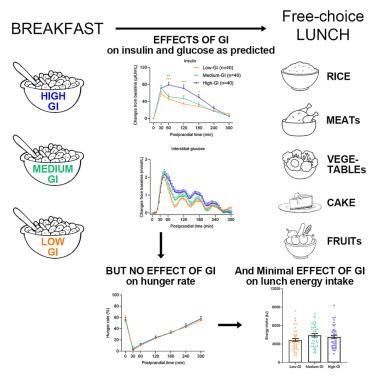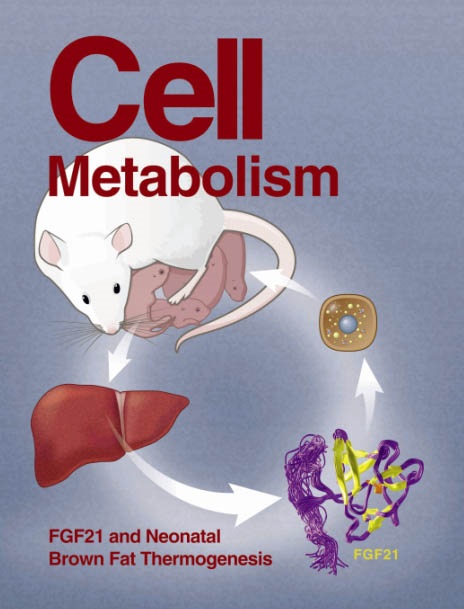Testing the carbohydrate-insulin model: Short-term metabolic responses to consumption of meals with varying glycemic index in healthy adults
IF 30.9
1区 生物学
Q1 CELL BIOLOGY
引用次数: 0
Abstract
The carbohydrate-insulin model predicts that meals with varying glycemic indices will elicit distinct metabolic and hunger responses, including greater intake at subsequent meals following high-glycemic-index meals. To test this, a randomized trial (NCT05804942) was conducted in healthy adults using intervention meals with low, medium, and high glycemic indices and a constant macronutrient composition. After intake of the intervention meals, glucose and insulin followed the predicted pattern, but subjective hunger did not. At the group level, low glycemic index meals led to lower energy intake changes. At the individual level, energy intake changes were unrelated to body fatness or levels of glucose, β-hydroxybutyrate, free fatty acids, L-lactate, leptin, adrenaline, glucagon-like peptide-1, glucagon, and insulin-glucagon ratio. A weak negative association was observed between energy intake changes and insulin or insulin-glucagon ratio at 300 min, opposite to the model’s prediction. These data provide little support for the carbohydrate-insulin model.

测试碳水化合物-胰岛素模型:健康成人食用不同血糖指数食物的短期代谢反应
碳水化合物-胰岛素模型预测,不同血糖指数的食物会引起不同的代谢和饥饿反应,包括在高血糖指数的食物之后的后续食物中摄入更多的食物。为了验证这一点,在健康成人中进行了一项随机试验(NCT05804942),使用具有低、中、高血糖指数和恒定常量营养素组成的干预膳食。摄入干预餐后,血糖和胰岛素符合预测模式,但主观饥饿感却没有。在组水平上,低血糖指数餐导致较低的能量摄入变化。在个体水平上,能量摄入的变化与体脂或葡萄糖、β-羟基丁酸、游离脂肪酸、l -乳酸、瘦素、肾上腺素、胰高血糖素样肽-1、胰高血糖素和胰岛素-胰高血糖素比值的水平无关。300 min时,能量摄入变化与胰岛素或胰岛素-胰高血糖素比值呈弱负相关,与模型预测相反。这些数据很少支持碳水化合物-胰岛素模型。
本文章由计算机程序翻译,如有差异,请以英文原文为准。
求助全文
约1分钟内获得全文
求助全文
来源期刊

Cell metabolism
生物-内分泌学与代谢
CiteScore
48.60
自引率
1.40%
发文量
173
审稿时长
2.5 months
期刊介绍:
Cell Metabolism is a top research journal established in 2005 that focuses on publishing original and impactful papers in the field of metabolic research.It covers a wide range of topics including diabetes, obesity, cardiovascular biology, aging and stress responses, circadian biology, and many others.
Cell Metabolism aims to contribute to the advancement of metabolic research by providing a platform for the publication and dissemination of high-quality research and thought-provoking articles.
 求助内容:
求助内容: 应助结果提醒方式:
应助结果提醒方式:


